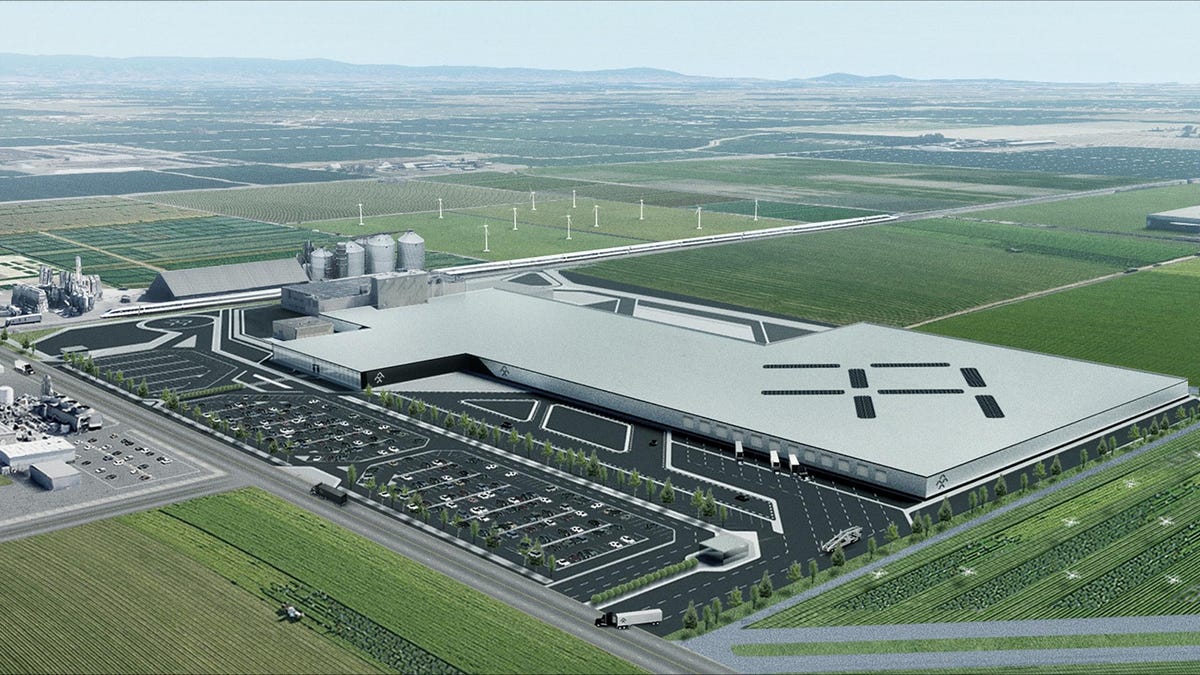Faraday Future has a new factory but still needs cash
We spoke with Stefan Krause, Faraday Future CFO and COO, about the company's current health and the troublesome relationship with LeEco.

Faraday Future, a California-based automotive startup, is facing tough times, but its CFO and now COO Stefan Krause wants you to know that things aren't as bad as they seem.
The company has announced a new manufacturing plant in California and Krause is taking this opportunity to distance Faraday from its initial source of funding, the presently imploding Chinese consumer electronics company LeEco.
Faraday burst onto the automotive startup scene with a flashy event at CES 2016 in Las Vegas, an event preceded by teasers and promises of a revolutionary machine. Instead, what we saw was a mocked-up electric hypercar, a garish machine that seemed unlikely to ever see the light of day.
CES 2017 was a better showing, this time with a real car that really drove and really performed. The FF 91 looked like it had the tech and performance to actually be a player on the global scene and compete against cars such as the Tesla Model X. But already there were dark clouds forming on the horizon, and it was rumored that the company had to suspend construction of its Nevada factory to even afford the event.
The sound of thunder has only grown louder following financial problems for LeEco, the Chinese company that provided much of Faraday's initial funding. LeEco's CEO Jia Yueting (also known as YT) stepped down, the company cut 70 percent of its US workforce and it's quickly fallen further from grace, being described as a "Ponzi scheme" among other, more colorful terms. That's bad good news for Faraday Future, which has been tied to LeEco since its inception. So Faraday CFO and COO Stefan Krause is doing everything he can to distance the two.
"Technically, there is no legal relationship with LeEco," Krause told me in an interview. "They are in one part of our business. They are a supplier and if we would lose them as a supplier there are many suppliers."
LeEco former-CEO YT provided much of the initial funding for Faraday Future, and was present at both of those CES events. But now, Krause wants only distance. Should LeEco cease to exist tomorrow, Krause said, there would be no impact on Faraday: "A liquidity situation in China would not have an impact around FF. We are a completely separate company."
VP Dag Reckhorn (left) and COO/CFO Stefan Krause (right) speak to a crowd of employees at Faraday Future's new factory.
Krause's focus now is fundraising to keep the lights on, keeping the company moving forward towards its promised start of manufacturing by the end of 2018. To that end, the company has secured a site for a new factory, the former Pirelli plant in Hanford, CA. It's here the company hopes to manufacture the FF 91 -- though in limited numbers, up to a maximum of 10,000 units annually.
For now, at least, the Nevada factory is off the table, though development of the FF 91 hasn't stopped. "The company continues to operate," Krause told me. "We have still over 1000 people on board." But, a quick look on Glassdoor shows many employees have big concerns, one describing the situation as "chaos," another indicating that there's "no money to pay vendors."
Indeed, Krause is searching for $1 billion to continue development of the FF 91 and bring it to production. "The level of interest is quite high," he said. "We're talking to several interested parties... I've not had a single investor say no."
The shadow of LeEco surely isn't helping those discussions, nor is the increasingly competitive nature of the automotive industry. Krause, however, is bullish: "Nobody doubts that this industry has a great future. We are not in a dying industry, I think we are in the right place at the right time. We have the right team and the right technology and the right ideas to bring this forward. We just have to battle a financial weakness right now."

